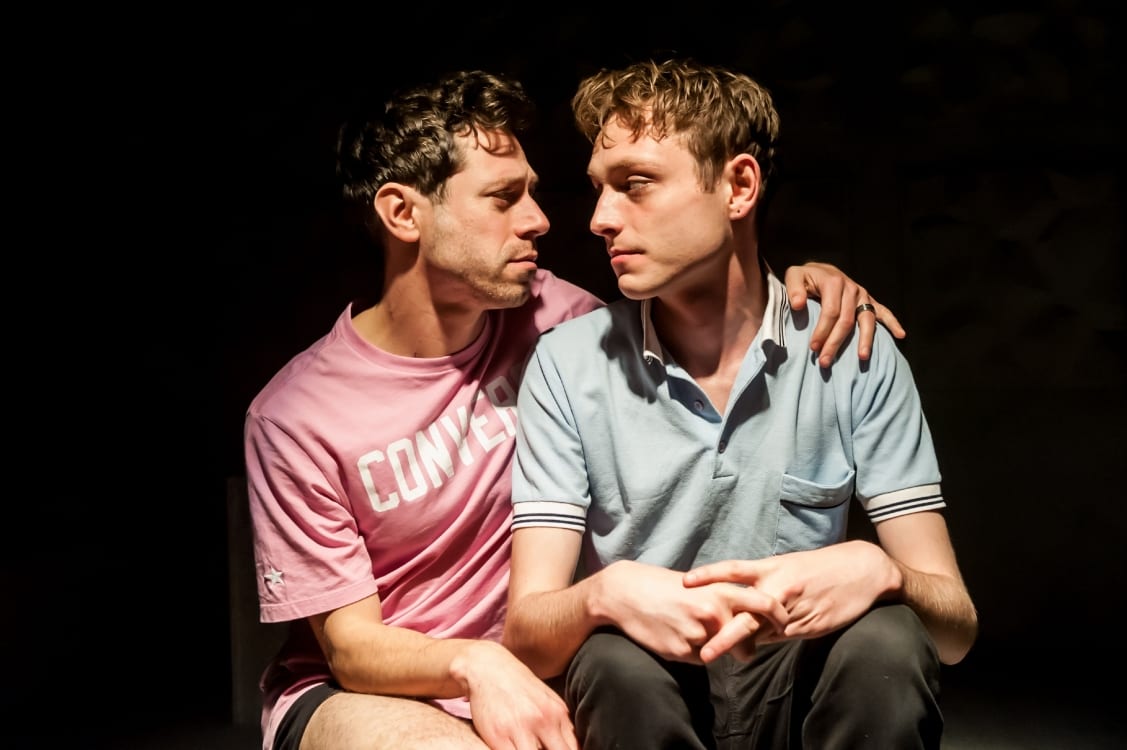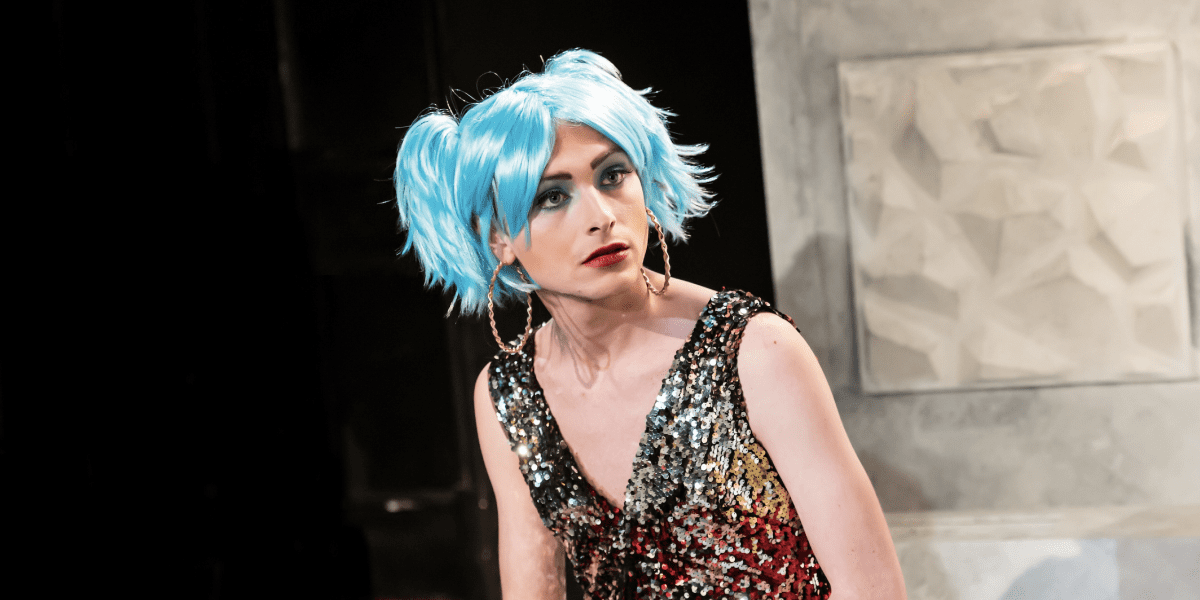After successful outings in Amsterdam and at The Vaults, this debut play comes to Islington for almost a month in newly revised form. It offers an ambitious, thought-provoking but not wholly successful examination of the problems, opportunities and complexities of the life of one gay man projected from the present day forward for thirty years or so until the protagonist is in his 50s. We see him move from adolescent experiment in rural Suffolk, through a series of relationships and encounters, some affectionate and affecting, others abusive or simply unexpected, until he reaches a point where he encounters a version of his younger self when in middle age. Three actors play the central figure at different points in his life.
The sources of the play lie in the author’s own life experience and – more formally – in the sequencing of Schnitzler’s ‘La Ronde’, which has in recent years received a specific and influential gay re-set by Joe DiPietro. The play is at its strongest dramatically in its scenes of conflict and disagreement – a transactional encounter between an older man and the main protagonist which turns ugly, a dispute between partners over whether children should or should not be part of the experience and expectations of gay couples. But there are also a couple of episodes of wistful reconciliation and unexpected understanding and empathy that also linger in the memory: a meeting with a first love many years later that delicately evokes both affectionate memories and a relationship outgrown; and a very touching bonding between a drag artist and a client that starts transactional and then becomes the scene where the main character most naturally unburdens himself.
At the end of the play you are left much more with incidental impressions than continuous recall. There are important discussions of very contemporary concerns – the double-edged impact of social media, and the nature of gay families now that marriage is more readily available. There are also meditations on timeless themes too – the possibilities and limitations of bonds of affection between young and old, the tensions between sexual desire and a desire for shared vulnerability and intimacy. This is all very well done, and neatly observed. But as drama the play has two major limitations.
Firstly, it is rarely more than the sum of its parts – the sheer number of scenes and the breaks between them break up the flow and often interrupt the discussions before they are fully developed or successfully wrapped up. You can’t fault the actors for the speed of the changes and the economy of handling of props and costume, but there is still a fragmenting effect overall. Also we don’t get to care as much about the central character as we do about the issues his experiences highlight. He is more a bundle of contradictory characteristics designed to set up debate than a fully living and inhabited character. He even lacks a name.
This is not to fault the three actors who inhabit his role, with Daniel Abelson in particular, showing real expressive and nuanced power in illustrating the man’s dilemmas and internal worries over his identity. But the very fact that three actors play him serves further to fragment the experience overall. This is where the lesson of ‘La Ronde’, where the characters always remain elusively impersonal in perpetual rotation fails to transfer completely to a play where the focus is on one man’s experience rather than an even-handed perpetual motion.
There is however lots to praise here. All the actors are at the top of their game in multiple roles, though Jenna Fincken is not really given enough to do as the one woman with whom the central character reaches out to. Antony Gabriel stands out in a series of older cameos, both tender and aggressive. Thomas Flynn offers a wonderfully rich empathetic portrayal of the drag queen in what it probably the most important scene of the evening, and Joseph Rowe does excellent work in making roles that could be unsympathetic come over as multi-layered and complex.
As so often in small venues such as the Old Red Lion the intimacy and restrictions of the space stimulate the designer to very impressive achievements. Luke W. Robson is responsible for set, lighting and costumes, doing an excellent job with each. The monochrome, minimalist yet flexible set works with great economy of means with one moveable element – a simple box – reappearing in multiple ingenious guises throughout the evening.
Director Andy Twyman has worked with cast and creatives to devise a fluent production of rare technical skill and deft integration. However, the handling of the script still needs further work if it is to be more than the sum of its – often distinguished – parts.

